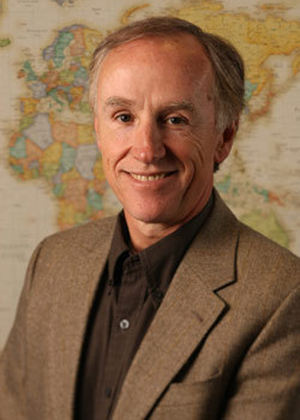 David Cortright
David Cortright
International peace talks to address Syria’s nearly 3-year-old civil war began today in Montreux, Switzerland (near Geneva), and the decision to exclude Iran from the gathering was a huge diplomatic mistake, according to David Cortright, director of policy studies at the University of Notre Dame’s Kroc Institute for International Peace Studies.
Cortright believes Iran’s presence would have benefited negotiations.
“Tehran’s help could be crucial in forging a coordinated diplomatic strategy for resolving the crisis in Syria and enhancing regional security,” Cortright says. “As a major backer of the current regime, Iran has enormous potential leverage in Damascus. Iran’s goal in neighboring Syria is to have a regime that is friendly to its interests and that protects the Alewite community. But this does not mean Iranian officials are wedded to the discredited regime of Bashar Assad. They might be willing to consider an alternative arrangement if it addresses their needs.”
Cortright says it was unwise for the U.S. to insist that Iran publicly commit to replacing Assad before the talks began.
“Insisting on preconditions for negotiations is not the way to successful diplomacy,” Cortright says. “Tehran shares Washington’s goal of ending a war that is causing widespread instability and violence in the region. Iran also shares the goal of ending the growing threat of al-Qaida-based militancy in Syria.”
Another interesting point, according to Cortright, is the presence of Saudi Arabia at the talks.
“By inviting Sunni-dominated Saudi Arabia to the negotiations but excluding Shia-majority Iran, the United States is taking sides in a regional ethnic power struggle,” Cortright says. “This could exacerbate the deepening Sunni-Shia divide and further undermine security in the region. Washington would do better to adopt a more even-handed strategy that seeks to balance differing interests and works toward more inclusive power sharing in Syria and across the region.”
Read Cortright’s recent Christian Science Monitor op-ed on ending the war in Syria.
Contact: David Cortright, 574-631-8546, dcortrig@nd.edu